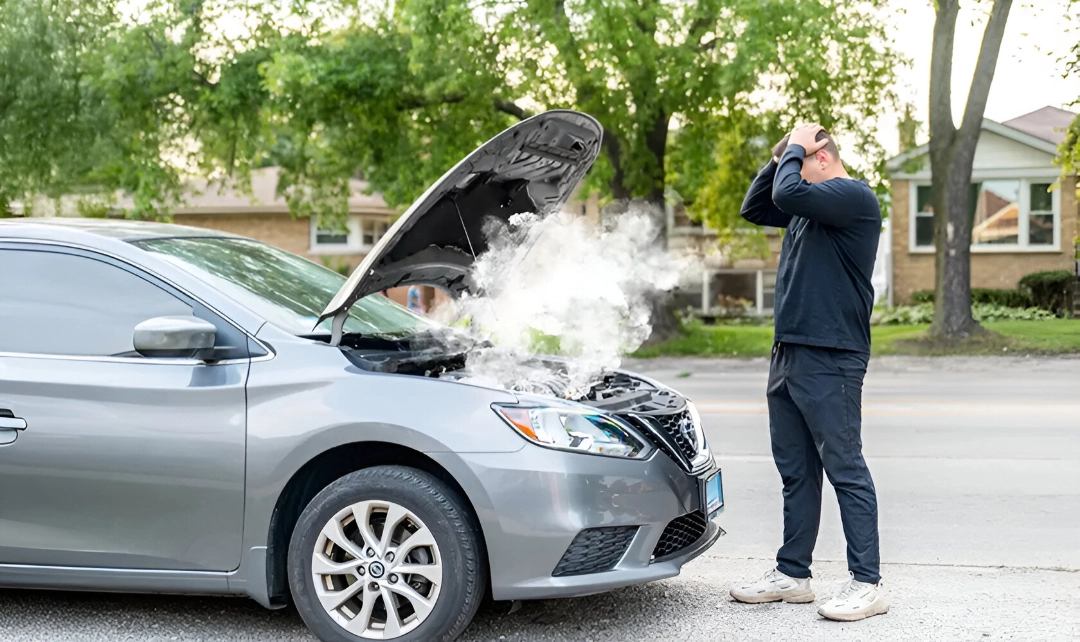

Blog Chapters
Toggle31 Jul 2025, 10:55 AM

Car overheating is a common issue that can lead to costly repairs if ignored. It happens when the engine temperature rises above the safe limit, affecting performance and safety. Understanding the reasons for overheating and knowing how to prevent it can save time and money.
Blog Chapters
ToggleKnowing why your car overheats helps in taking quick action. Here are the major causes:
Identifying signs early helps prevent serious damage:
Act quickly to prevent damage:
Prevention is always better than repair. Follow these steps:
1. Regular Coolant Check
Keep the coolant level within the recommended range.
Use the correct type of coolant for your vehicle.
2. Inspect Radiator And Hoses
Look for leaks, cracks, or corrosion.
Clean the radiator to remove dirt and debris.
3. Check Thermostat And Water Pump
Replace faulty components at the first sign of trouble.
A well-functioning water pump ensures proper coolant circulation.
4. Maintain Engine Oil
Regular oil changes prevent heat buildup.
Check oil levels during routine inspections.
5. Ensure Fan And Belts Are Working
Inspect belts for wear and tear.
Ensure cooling fans run when the engine heats up.
6. Avoid Extreme Stress On The Engine
Do not overload the vehicle beyond its capacity.
Drive smoothly and avoid prolonged idling in traffic.
Car overheating can cause severe damage if not handled quickly. Regular maintenance, checking coolant levels, and inspecting key components can prevent most overheating issues. Stay alert to early warning signs and take action immediately. Keeping your engine cool ensures safe, efficient, and stress-free driving.
CarOnPhone is your one-stop destination to see all upcoming cars, latest cars, released cars, and EV Cars, and compare Cars in all Car Brands. Stay tuned and follow us to update yourself on the automotive world.










